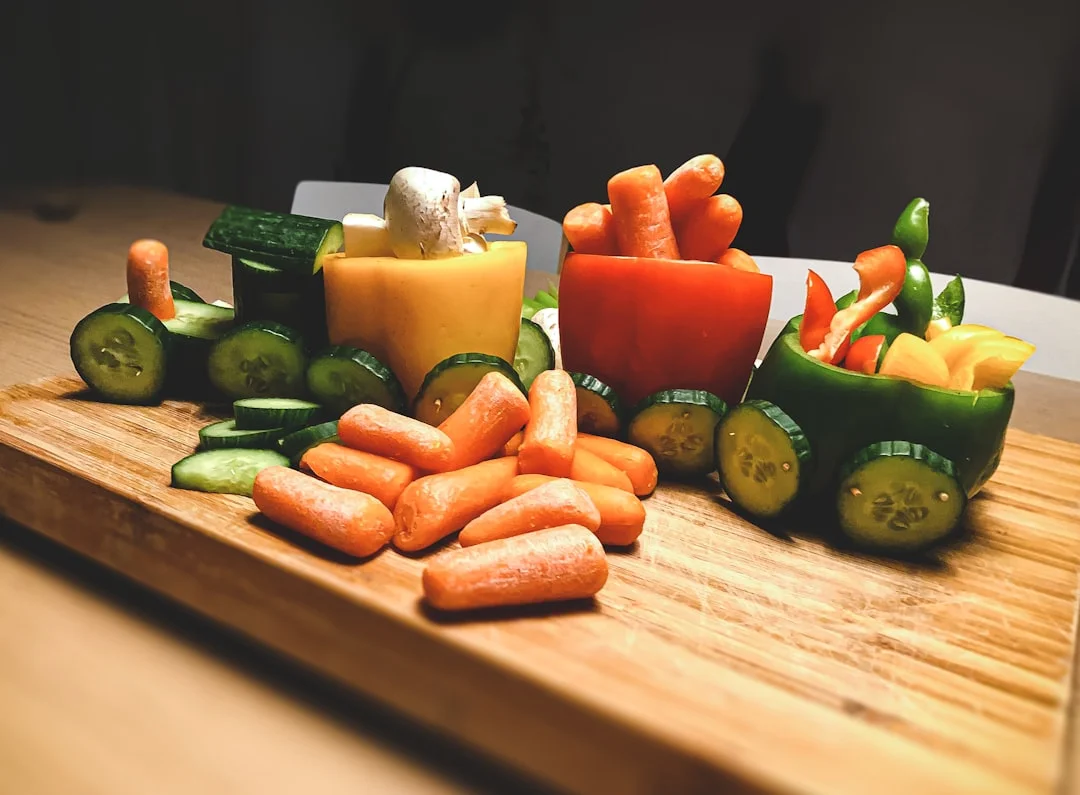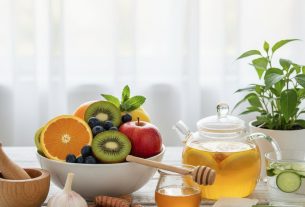Estimated Reading Time: 8 minutes
AA a health enthusiast, I’ve always been fascinated by the power of food.
It’s not just about filling your stomach; it’s about fueling your body with the right nutrients to thrive.
And for us women, it’s particularly crucial to be mindful of our dietary choices.
We have unique nutritional needs throughout different life stages, from our reproductive years to menopause.
This article dives deep into the top nutrient-rich foods for women, exploring how they can help you achieve optimal health and vitality.
Remember my friend, Sarah? She was constantly exhausted, battling fatigue and mood swings. Her diet was a whirlwind of processed foods.
Once she incorporated more nutrient-dense options, like those we’ll discuss, her energy levels soared, and her overall well-being improved dramatically.
This story exemplifies the transformative impact that even small changes can have.
Before we jump into specific foods, let’s briefly touch upon the essential nutrients women need to prioritize. Key players include:
Understanding these fundamental needs is the first step toward making informed food choices.
Now, let’s unveil some of the top nutrient-rich foods for women, broken down for easy understanding. Remember, variety is key!
The goal is to create a vibrant, balanced diet.
Think spinach, kale, romaine lettuce—these greens are nutritional powerhouses!
They’re packed with vitamins (like Vitamin K, A, and C), minerals (iron, calcium, and magnesium), and fiber.
They are also incredibly low in calories, making them perfect for weight management.
Did you know that spinach is an excellent source of iron? A deficiency can lead to significant fatigue, impacting daily life and productivity.
You can easily incorporate these greens into salads, smoothies, or even sneak them into your omelets.
I personally add a handful of spinach to almost every morning smoothie, and it’s become a non-negotiable habit.
Blueberries, strawberries, raspberries—these colorful gems are loaded with antioxidants.

Antioxidants help protect your cells from damage caused by free radicals, which can contribute to aging and various diseases.
Berries are also a good source of fiber and vitamins.
Consider this: a small serving of berries can provide a significant boost of antioxidants compared to many other foods.
They are a fantastic way to satisfy your sweet tooth in a healthy way.
I often freeze a bag of mixed berries and add them to my overnight oats for a naturally sweet and refreshing breakfast.
Salmon, tuna, mackerel—these fish are rich in omega-3 fatty acids, essential for heart health, brain function, and reducing inflammation.
Omega-3s are particularly important for women during pregnancy and breastfeeding for the baby’s brain development.
They are also an excellent source of protein and vitamin D.
I recall reading an article about a woman who struggled with postpartum depression.
After consulting with a nutritionist and incorporating more fatty fish into her diet, she reported a significant improvement in her mood and overall well-being.
The positive impact of omega-3s is truly remarkable. Aim for at least two servings of fatty fish per week.
Grilled salmon with a side of roasted vegetables is one of my go-to dinners.
Almonds, walnuts, chia seeds, flax seeds—these little packages pack a big punch!
They’re brimming with healthy fats, protein, fiber, vitamins, and minerals. They’re also great for regulating blood sugar and promoting satiety.
Be mindful of portion sizes, as nuts and seeds are calorie-dense. A small handful as a snack can be very satisfying.
I always carry a bag of almonds with me when I’m out and about. They’re a convenient and healthy way to combat hunger pangs.
Incorporating these into your diet is one of the easiest ways to get more fiber.
Eggs are a complete protein, meaning they contain all nine essential amino acids.
They’re also a good source of choline, a nutrient important for brain health and fetal development during pregnancy.
They’re relatively inexpensive and incredibly versatile.

Whether you like them scrambled, fried, boiled, or poached, eggs are a quick and easy addition to your diet.
There has been so much misinformation about eggs! For years, they were demonized.
Thankfully, we’ve learned that moderate egg consumption is not linked to increased cholesterol levels in most people.
Eggs have been a staple in my diet since I was a child, and I credit them, in part, for my sustained energy levels and overall health.
Lentils, beans, chickpeas – these are excellent sources of fiber, protein, and complex carbohydrates.
They help keep you feeling full, regulate blood sugar, and contribute to digestive health. Plus, they are a budget-friendly food option.
If you are struggling with digestive issues, I strongly recommend incorporating more legumes into your diet.
They’re packed with prebiotics, which can help nourish the good bacteria in your gut. My tip? Start slowly to avoid any digestive discomfort.
Try adding a small portion of lentils to a soup or stew a few times a week. Over time, your body will adjust.
Yogurt, especially Greek yogurt, is a great source of calcium and protein.
The probiotics in yogurt can support gut health and boost the immune system. Choose plain yogurt to avoid added sugars.
You can sweeten it with fruits or a drizzle of honey.
I love the versatility of yogurt! I often use it in smoothies, as a base for dips, or even as a substitute for sour cream.
It’s a convenient and delicious way to get those beneficial probiotics. Be sure to check the label to ensure it contains live and active cultures.
Remember to watch out for added sugars, as these are detrimental to your health.
While these are some of the top nutrient-rich foods for women, remember that everyone’s needs are different.
Consider factors like your age, activity level, and any specific health conditions.
Working with a registered dietitian or nutritionist can help you create a personalized eating plan that meets your unique requirements.
While food should be your primary source of nutrients, supplements can sometimes play a supportive role.
For instance, women of childbearing age may need to supplement with folic acid, and those living in areas with limited sunlight may need Vitamin D.

Always consult with your doctor before taking any supplements.
Incorporating these top nutrient-rich foods for women into your diet is a powerful step towards enhancing your well-being.
Start with small, manageable changes, and gradually build a sustainable, healthy eating pattern.
Listen to your body, enjoy the process, and celebrate your progress! Remember, it’s a journey, not a race.
The most important thing is to find foods that nourish you and bring you joy.
Let’s not forget about the positive effects of exercise and adequate sleep. These are equally important components of an all-around healthy lifestyle.
When you combine all three — a nutrient-rich diet, regular exercise, and adequate sleep, you create a powerful health trifecta.
In essence, nourishing your body with the top nutrient-rich foods for women is an investment in your future.
It’s a celebration of your health, vitality, and ability to thrive.
Embrace these foods, experiment with different recipes, and enjoy the journey toward a stronger, healthier you.
Don’t hesitate to reach out for help, be it a nutritionist, or a health coach.
Your health is worth the investment of time and effort, and the results are definitely worth it!
Remember, you are strong, resilient, and worthy of feeling your absolute best! Start today by making one small, positive change in your diet.
That one step can lead to many more. Cheers to your health, and to a future filled with vitality and well-being!
Frequently Asked Questions
How can I incorporate more nutrient-rich foods into my busy lifestyle?
Planning and preparation are key! Consider meal prepping on weekends, making large batches of healthy meals like soups or stews. Keep healthy snacks readily available, such as nuts, seeds, or cut-up vegetables. Embrace convenience foods that are nutrient-dense, such as pre-washed greens or frozen berries.
Additionally, don’t be afraid to repurpose leftovers for quick lunches or snacks. Always keep healthy options available to avoid impulsive decisions!
Are there any foods that women should avoid or limit for optimal health?
Yes, women should aim to limit their intake of processed foods high in sugar, unhealthy fats, and sodium. Excessive consumption of these foods can contribute to various health problems. While some foods may be fine in moderation, it’s always best to prioritize whole, unprocessed foods.
This includes processed meats, sugary drinks, and foods with a high saturated fat content. Remember to always read food labels!
How does age influence the best food choices for women?
Nutritional needs change throughout a woman’s life. For example, during pregnancy and breastfeeding, higher intake of folate and iron is essential. During menopause, increased calcium and vitamin D intake becomes crucial for bone health.
Older women may also benefit from increased protein intake to maintain muscle mass. It’s vital to adjust your diet based on your specific life stage, which makes personalized recommendations from a nutritionist all the more valuable.
What are some common misconceptions about healthy eating for women?
One common misconception is that all fats are bad. Healthy fats, like those found in avocados, nuts, and olive oil, are essential for hormone production and overall health. Another myth is that restrictive diets are necessary for weight loss.
Sustainable weight loss focuses on balanced nutrition and gradual lifestyle changes. Another misconception revolves around supplements. While they can be helpful, they are not a substitute for a nutrient-rich diet. Always prioritize whole foods first.



